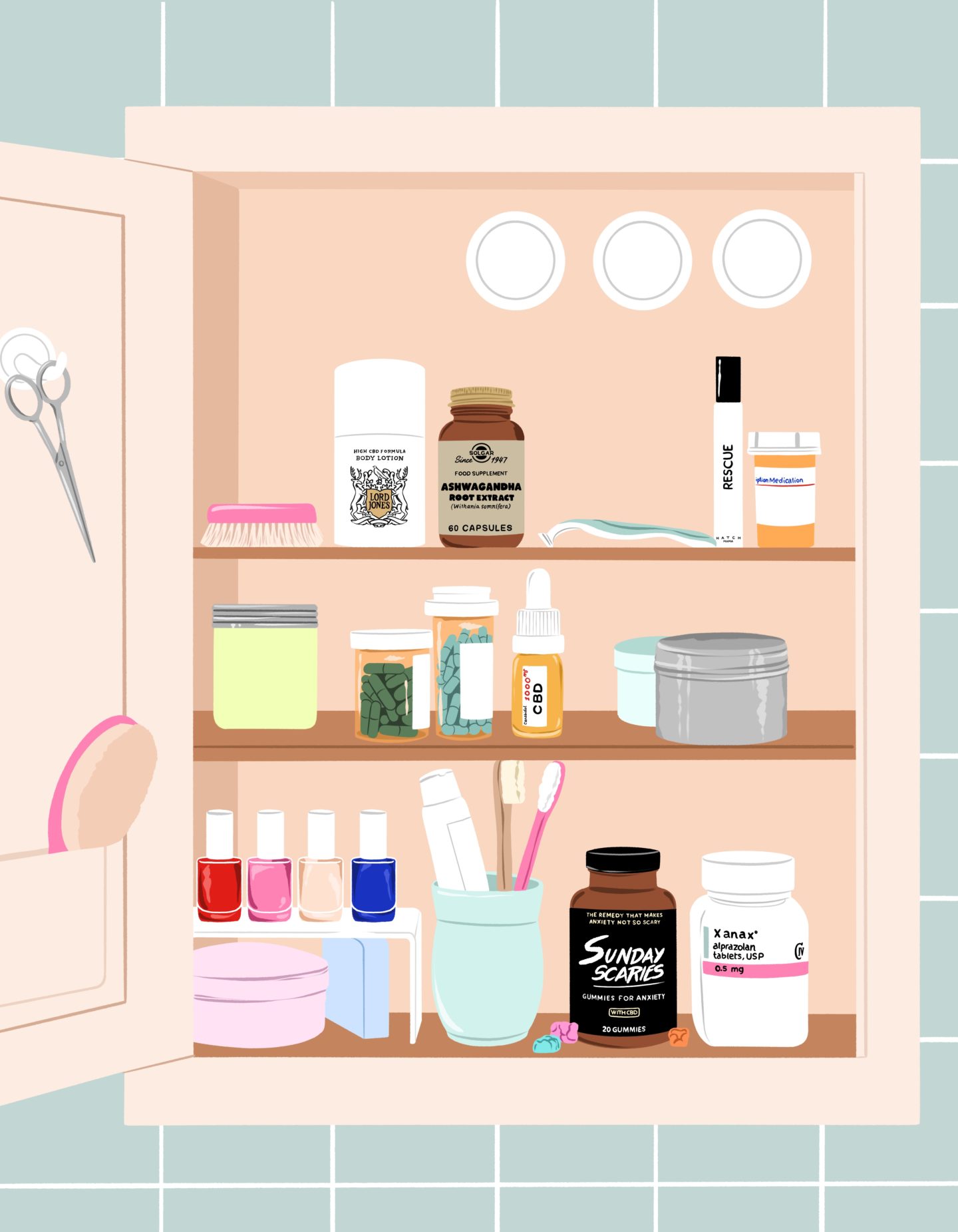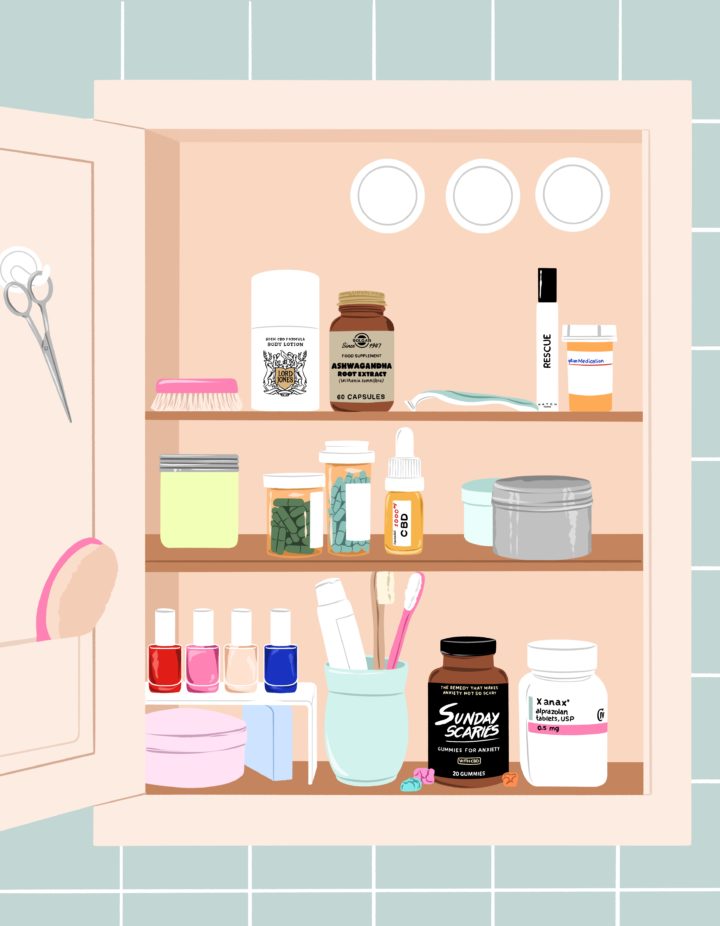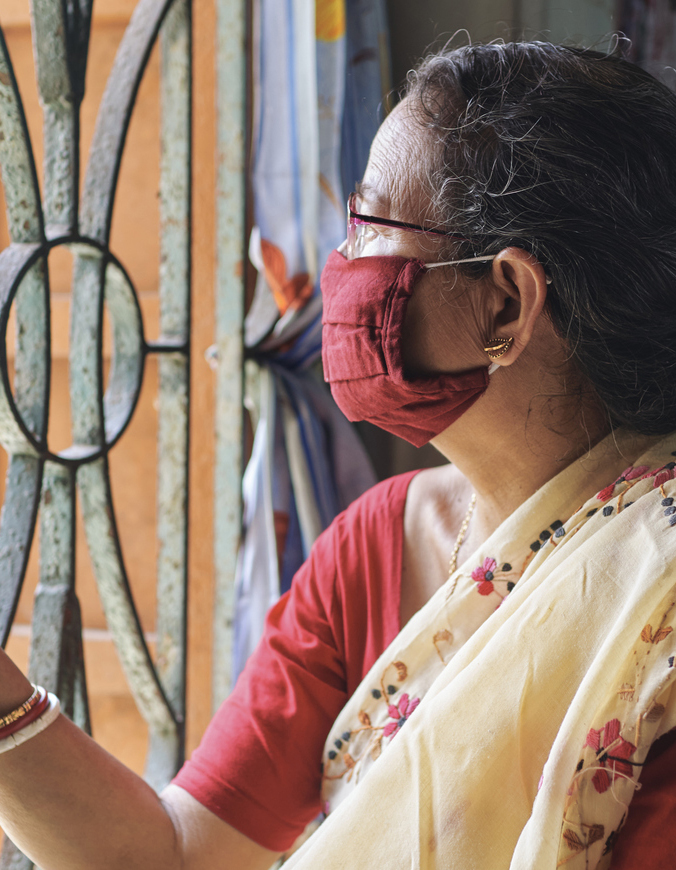Juliana Muñoz didn’t anticipate feeling the way she did, but who could blame her? Upon entering her seventh straight month of working full-time from home as well as homeschooling her four-year-old and dealing with a still-in-diapers 20-month-old, she hit a wall. “I can’t say for sure whether I had a full-blown anxiety attack, but it was nothing like I’ve ever felt before,” says Juliana. “I just shut down, literally. I couldn’t breathe, I could barely see. I just went into full on panic mode and was hysterical for like 45 minutes.”
Cynthia Williams hasn’t had a good night’s sleep since finding out she was pregnant last April. What she and her husband had worked so hard for – having spent more than six months trying to conceive – she feels like she can barely enjoy. “All I can think about is giving birth in the middle of a pandemic,” says Cynthia. “It’s not even about the hospital or wearing a mask. It’s about that I can’t have a shower with my best friends. My parents can’t come see the baby since they live on the opposite side of the country. All of it is so terrible and never how I originally imagined this moment.”
Anxiety. We all have it. Life is tough. 2020 has been hell. And there’s no end in sight. Covid-19 has been ripping across the world and we’re all bracing ourselves for a “long winter” of upticks, illness, layoffs and more school closures. For women, particularly new mothers or moms-to-be, the situation is all the more dire.
In their transition to parenthood, pregnant women need social connection more than ever, yet they’re restricted in their ability to connect and stay safe during pandemic. “You hear stories of women giving birth alone, not seeing friends and family afterwards,” says Dr. Darby Saxbe, associate professor in the Department of Psychology at the University of Southern California. “We’re stunned by the levels of distress we’re seeing from women. We believe it’s setting up new parents for higher levels of postpartum depression risks or other difficulties in adapting to parenthood.
”
“We’re stunned by the levels of distress we’re seeing from women.”
And for current mamas, the news isn’t any better. According to Dr. Saxbe, parents in dual income households are already putting everything together with tape and string. Now, as many young children learn from home, it’s skewing the division of labor in the home. “We know relationships tend to get more traditional in terms of how housework is negotiated after a child is born,” says Dr. Saxbe. “It’s a well documented stat and the pandemic is highlighting that.
Often women’s jobs are more conducive to going remote and couples end up making wrenching decisions about whose job is more important and who can default to the role of remote school teacher. All of this only exacerbates these feelings of anxiousness.
”
So seeing as we’re pretty far from the end of this mess, what’s a mama or mama-to-be to do to get a grip on anxiety? From CBD gummies to prescriptions meds, to everything in between, there’s no shortage of offerings meant to target uncomfortable feelings. We outline just a few of them below. But, in the meantime, try to remember that first, this is a totally unsustainable situation. We’re talking lose/lose situation.
Try to find peace in that. Also, recognize that this is hopefully a moment in time and that this too shall pass. “There are upsides of having more time with your kids, says Dr. Saxbe. “Try to celebrate silver linings while also being clear eyed about the problems this exposes. Maybe it will lead to us becoming more politically aligned on supporting families down the road. I know it will for me.”
The New Anxiety Treatments
Talk to Someone
When it comes to good old fashioned therapy, there are few substitutions. Dr. Saxbe recommends Interpersonal Therapy, or IPT, which is a well validated structured psychological therapy approach to social relationships. It identifies problems and teaches people how to communicate better, process emotions and make better use of support networks. You can opt for tele-therapy during the pandemic.
Just Breathe
OK it sounds totally cliche to breathe, right? After all, aren’t we all breathing all the time? But Chorus, a new kind of meditation experience utilizes rhythmic breathing exercises that quiet your mind and help you reconnect to your body and reset your thinking patterns. There’s also the VIP of breathing (yep, we just wrote that), the Wim Hof Method, whose special breathing exertions are said to keep the body in optimal condition and calm the mind.
Stick a Fork in It
Tuning fork therapy uses calibrated metal tuning forks to apply specific vibrations to different parts of the body. This can help release tension and energy, and promote emotional balance. It supposedly works similarly to acupuncture, using sound frequencies for point stimulation instead of needles. Proponents of tuning fork therapy claim it helps induce enhanced focus, entranced state, relaxation and sleep.
CBDeez It
From gummies to sports drinks to oils, there is no shortage of CBD – the non-psychoactive cannabinoid, not to be confused with the high-inducing THC. For some it’s a life saver in tackling the everyday stresses of life in Covid-19. But, if you’re pregnant or nursing, check with your OBGYN on their recommendations and whether they feel it’s safe for you and babe.
Go Big Pharma
Ativan, Klonopin, Xanax: Take your pick, these dolls are all commonly prescribed for general anxiety and panic disorders as well as depression, insomnia and more. However, if you are pregnant and/or nursing, there are a whole slew of risks associated with these pills, so definitely speak to your healthcare provider on alternative ways to de-stress.
Get Moving
Exercise is widely considered vital for maintaining mental fitness, and has been proven to be a natural stress reliever. It also reduces preggo fatigue, improves alertness and concentration and enhances overall cognitive function. (aka when stress has depleted your energy or ability to concentrate.) When stress affects the brain, with its many nerve connections, the rest of the body feels the impact as well. Or, if your body feels better, so does your mind. Exercise and other physical activity produce endorphins — chemicals in the brain that act as natural painkillers — and also improve the ability to sleep, which in turn reduces stress.
Write It Down
Note the date, time and place of each stressful episode, and what you were doing, who you were with, and how you felt both physically and emotionally. Give each stressful episode a stress rating and use a stress diary to understand what triggers your stress and how effective you are in stressful situations. This will enable you to avoid stressful situations and develop better coping mechanisms.




